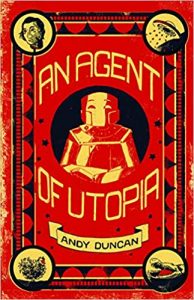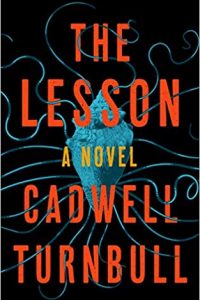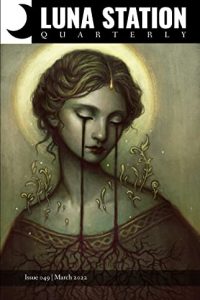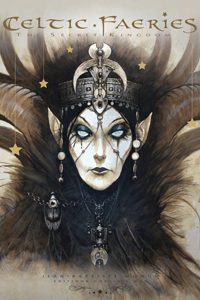Gary K. Wolfe Reviews An Agent of Utopia by Andy Duncan
 An Agent of Utopia, Andy Duncan (Small Beer 978-1-61873-153-1, $16.00 288p, tp) November 2018.
An Agent of Utopia, Andy Duncan (Small Beer 978-1-61873-153-1, $16.00 288p, tp) November 2018.
There are few contemporary writers in any genre as immediately identifiable by voice alone as Andy Duncan, and it’s a voice with roots as far back as Mark Twain and as current as Howard Waldrop, finely attuned to the various tributaries of American vernacular – but often quite a bit darker than its down-home patina would make it seem. That’s one reason the title story of his new collection An Agent of Utopia seems so striking: it’s set in 16th century London, narrated with the formal diction of a diplomatic report (“To the Prince and Tranibors of our good land”), and it concerns the efforts of Sir Thomas More’s daughter Margaret to reclaim his head following his execution. That much seems historically true, but Duncan’s narrator is a visitor from More’s own Utopia, sent to offer him refuge by, basically, bribing him out of prison with the fabulous jewels that are considered merely street litter in Utopia. More declines the offer, and the agent is then recruited by Margaret in her odd quest. As peaceful as that utopian homeland may be, the agent turns out to be pretty kick-ass when it comes to violently dispatching foes in the service of Margaret. More’s disembodied head, which turns out to be annoyingly chatty at inopportune times, isn’t much help. This is where a more familiar Duncan emerges, with his wry sense of absurdity and a neat, unexpected twist at the end.
“An Agent of Utopia” is one of two original stories in the collection, which in some ways provides a kind of retrospective of Duncan’s career so far. Seven of the selections were in his 2012 collection The Pottawatomie Giant and Other Stories (published in the UK only by PS Publishing), while two appeared in Beluthahatchie and Other Stories, which earned a World Fantasy Award way back in 2001. “Slow as a Bullet”, from Jonathan Strahan’s Eclipse series, hasn’t previously appeared in a Duncan collection, while “Joe Diabo’s Farewell” is the other story original to the collection. “Slow as a Bullet” is a classic tall tale about a Florida braggart who boasts he can outrun a bullet and then spends a year mixing gunpowder with every slow thing he can think of – molasses, drying paint, ground turtle shells, etc. – told in the colorful folk idioms of the rural South, such as describing an ancient collie as “blind in one eye and couldn’t see out the other, and had so much arthritis that she wouldn’t have been walking if she hadn’t been held up and jerked along by the fleas.” “Joe Diabo’s Farewell”, like several other stories, derives from Duncan’s apparently tireless rummaging around in the dusty attic of American folk history. The narrator, Eddie Two Rivers DeLisle, is a Mohawk “high steel” riveter working on the (real) Fred R. French building in New York in 1926, when he witnesses a veteran co-worker fall to his death. That weekend, Eddie and a couple of friends decide to attend the elaborate premiere of a Hoot Gibson western about General Custer, where a bonus will be paid to “real Indians” who participate in the sideshow – which of course turns out to be an appalling carnival of stereotypes and clichés. There’s a lovely scene, though, after the film, in which the mostly-fake “Indian” performers – Jewish, black, Mohawk, Italian – find common ground over a street vendor’s roasted chickpeas, which mean something different in each of their cultures. “If we cross paths after tonight,” Eddie thinks, “we won’t even recognize each other. We’ll just see a Negro, or a Greek, or a Jew, and that’s all we’ll see.” It’s an insight that neatly captures Duncan’s dual vision of America – the unique promise it offers for community, and the ways in which it repeatedly squanders that promise.
Several of the other stories, familiar to those who have followed Duncan’s career, provide insight into some of his trademark techniques – such as borrowing incidents from the lives of historical figures, and (rather than simply fictionalizing them) weaving his own tales around such kernels, often by choosing an unusual viewpoint (such as that visitor from Utopia). For example, “Unique Chicken Goes in Reverse” is based on an odd incident in the childhood of Flannery O’Connor (you can still find the original Pathé newsreel online), but the story focuses on how the young girl’s unique version of faith challenges the local priest’s orthodoxy. The World Fantasy-winning “The Pottawatomie Giant” pivots around a 1915 tiff between Houdini and heavyweight boxing champion Jess Willard, when Willard refused to join him on stage, but the viewpoint quickly jumps forward to 1968, the year of Willard’s death, and then to that of his granddaughter Jennifer, becoming in the process a moving meditation on lost opportunity, and finally a kind of micro-alternate-history. In “Senator Bilbo”, a satire that feels more disturbingly relevant now than when it appeared in 2001, Duncan unearths the tale of a real-life white supremacist Mississippi senator named Theodore Bilbo, and uses the name coincidence to weave a tale of an older Bilbo Baggins railing against immigrants and racial purity in the Shire.
The narrator of the UFO-abductee tale “Close Encounters” has the name of the real-life Buck Nelson, a Missouri farmer who claimed to have met aliens and who staged an annual UFO festival for years; here he grudgingly agrees to talk to a young woman reporter who may not be what she seems. The line between history and not-history is even more blurred in “Zora and the Zombie”, which is woven out of an incident from Zora Neale Hurston’s researches in Haiti in the 1930s, when she met and even photographed a reputed zombie woman, but any hint of the supernatural takes a back seat to Duncan’s portrayal of Hurston as a confident, clever scholar, facing down an arrogant doctor, a frightful cannibal cult, and a kind of local sex-goddess named Erzulie. Hurston’s work also seems to figure in the oddly titled “Daddy Mention and the Monday Skull”, in which the title character seeks the gift of song from Uncle Monday, a medicine man-turned-alligator (described in one of Hurston’s collected Florida folktales), hoping for success like that of the actual prison singing group the Prisonaires (whose major hit, “Walking in the Rain”, you can also find online).
As “Daddy Mention” suggests, music often plays an important role in Duncan’s stories (something called “Uncle Monday’s song” is also quoted at length in it). The narrator of “Beluthahatchie” is a version of the Delta blues singer Robert Johnson (the song titles he mentions are all Johnson’s, though he’s called John), whose posthumous train ride takes him right past Hell to a dreary suburb called Beluthahatchie (“Hell’s about full,” the Devil explains), where he learns something about his own legacy. “The Big Rock Candy Mountain” borrows wholesale the imagery of the old song about a kind of hobo Cockaigne and adds a couple of ironic twists about mortality and even the role of women in such a bum’s paradise. “The Map to the Homes of the Stars” describes a pair of teen friends who cruise around listening to Aerosmith or the Beatles while mapping out the homes of girls as though they were Hollywood celebrities, until one of them unexpectedly escapes with one of the girls, leaving his friend, years later, to muse on the map his own life has followed. It’s not really fantastic at all, but it feels like the most personal tale in the book, and it captures, as movingly as anything in this brilliant collection, the distance between the dreams and legends we inherit and those that we make for ourselves.
Gary K. Wolfe is Emeritus Professor of Humanities at Roosevelt University and a reviewer for Locus magazine since 1991. His reviews have been collected in Soundings (BSFA Award 2006; Hugo nominee), Bearings (Hugo nominee 2011), and Sightings (2011), and his Evaporating Genres: Essays on Fantastic Literature (Wesleyan) received the Locus Award in 2012. Earlier books include The Known and the Unknown: The Iconography of Science Fiction (Eaton Award, 1981), Harlan Ellison: The Edge of Forever (with Ellen Weil, 2002), and David Lindsay (1982). For the Library of America, he edited American Science Fiction: Nine Classic Novels of the 1950s in 2012, with a similar set for the 1960s forthcoming. He has received the Pilgrim Award from the Science Fiction Research Association, the Distinguished Scholarship Award from the International Association for the Fantastic in the Arts, and a Special World Fantasy Award for criticism. His 24-lecture series How Great Science Fiction Works appeared from The Great Courses in 2016. He has received six Hugo nominations, two for his reviews collections and four for The Coode Street Podcast, which he has co-hosted with Jonathan Strahan for more than 300 episodes. He lives in Chicago.
This review and more like it in the November 2018 issue of Locus.
 While you are here, please take a moment to support Locus with a one-time or recurring donation. We rely on reader donations to keep the magazine and site going, and would like to keep the site paywall free, but WE NEED YOUR FINANCIAL SUPPORT to continue quality coverage of the science fiction and fantasy field.
While you are here, please take a moment to support Locus with a one-time or recurring donation. We rely on reader donations to keep the magazine and site going, and would like to keep the site paywall free, but WE NEED YOUR FINANCIAL SUPPORT to continue quality coverage of the science fiction and fantasy field.







